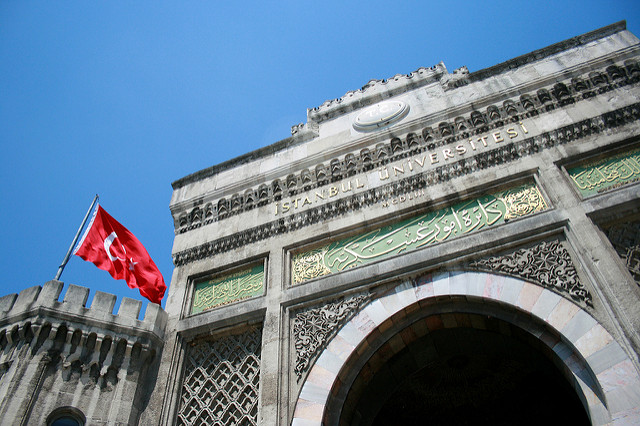10 Aug 2016 | Academic Freedom, Campaigns -- Featured, Europe and Central Asia, mobile, News and features, Turkey, Turkey Uncensored
The stream may be small right now, a trickle, but it is unmistakable. Turkey’s academics and secular elite are quietly and slowly making their way for the exits.
Some months ago, in the age before Turkey’s post-coup crushing of academia, a respected university lecturer told me she was seeking happiness outside Turkey. She was teaching economics at one of Istanbul’s major universities, but neither her nor her husband, who is also in the financial sector, had a desire to remain in the country any longer. They simply packed up and left for Canada.
The growing unease about the future is now accelerating among the academics and mainly secular elite in the country. This well-educated section of society is feeling the pressure more than any other, and as the instability mounts the urge to join the “brain drain” will only increase.
Some of them, particularly those academics who have been fired and those who now face judicial charges for signing a petition calling for a return to peace negotiations with the Kurdish PKK, no longer see a future for their careers. With the government further empowered by emergency rule decrees, the space for debate and unfettered learning is shrinking.
One of the petition’s signatories, the outspoken sociologist Dr Nil Mutluer, has already moved to a role at the well-respected Humboldt University in Berlin to teach in a programme devoted to scholars at risk.
You only have to look at the numbers to realise why more are likely to follow in the footsteps of those who have already left Turkey. In the days after the failed coup that struck at the country’s imperfect democracy, the government of president Recep Tayyip Erdogan swept 1,577 university deans from their posts. Academics who were travelling abroad were ordered to return to the country, while others were told they could not travel to conferences for the foreseeable future. Some foreign students have even been sent home. The pre-university educational system has been hit particularly hard: the education ministry axed 20,000 employees and 21,000 teachers working at private schools had their teaching licenses revoked.
Anyone with even the whiff of a connection to FETO — the Erdogan administration’s stalking horse for the parallel government supposedly backed by the Gulenist movement — is in the crosshairs. Journalists, professors, poets and independent thinkers who dare question the prevailing narrative dictated by the Justice and Development Party will hear a knock at the door.
It appears that the casualty of the coup will be the ability to debate, interrogate and speak about competing ideas. That’s the heart of academic freedom. The coup and the president’s reaction to it have ripped it from Turkey’s chest.
But it’s not just the academics who are starting to go. The secular elite and people of Kurdish descent that are also likely to vote with their feet.
Signs are, that those who are exposed to, or perceive, pressure, are already doing this. Scandinavian countries have noted an increase in the exodus of the Turkish citizens. Deutsche Welle’s Turkish news site reported that 1719 people sought asylum in Germany in the first half of this year. This number already equals the total of Turkish asylum seekers who registered during the whole of 2015. Not surprisingly, 1510 of applications in 2016 came from Kurds, who are under acute pressure from the government.
The secular (upper) middle class is also showing signs of moving out. The economic daily Dünya reported on Monday that the number of inquiries into purchasing homes abroad grew four-to-five times the pre-coup level. Many real estate agencies, the paper reported, are expanding their staff to meet the demand. Murat Uzun, representing Proje Beyaz firm, told Dünya:
“The demand is growing since July 15 by every day. Emergency rule has also pushed up the trend. These people are trying to buy a life abroad. Ten to twelve people visit our office every day….Many ask about the citizenship issues.”
Adnan Bozbey, of Coldwell Banker, told the paper that people were asking him: “Is Turkey becoming a Middle Eastern country?”
According to Dünya, the USA, Ireland, Portugal, Greece, Malta and Baltic countries are popular among those who want to seek life prospects elsewhere.
In short, the unrest is spreading. Unless the dust settles and the immense political maneuvering about the course Turkey is on reverses, it would be realistic to presume that a significant demographic shift will take place in the near future.
A version of this article originally appeared on Suddeutsche Zeitung. It is posted here with the permission of the author.

Turkey Uncensored is an Index on Censorship project to publish a series of articles from censored Turkish writers, artists and translators.
25 Sep 2015 | Bahrain Statements, Campaigns, mobile, Statements
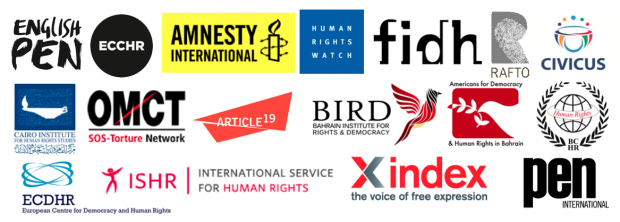
The Bahrain Institute for Rights and Democracy, alongside 16 NGOs including Index on Censorship, today voiced support for the UN joint-statement on human rights in Bahrain. The statement, delivered by Switzerland at the 30th session of the UN Human Rights Council, was co-signed by 33 countries, including 19 EU states and the United States of America.
The statement remains open for additional signatories until the end of the Human Rights Council session on 2 October 2015. The NGOs invite states who have not signed to do so and call on those who have to continue exerting collective pressure for human rights progress in Bahrain.
Letter
To the Governments of: Albania, Argentina, Bosnia and Herzegovina, Brazil, Canada, Croatia, Cyprus, Finland, Greece, Hungary, Italy, Malta, Mexico, Republic of Korea, Serbia, Slovak Republic, and Spain
24 September 2015
Excellencies,
We, the undersigned non-governmental organisations, write to voice our support for the joint statement on the human rights situation in Bahrain delivered by Switzerland at the 30th Session of the Human Rights Council (HRC).
Since the last joint statement on Bahrain in June 2014, the government has continued to curtail the rights to freedom of expression, association and peaceful assembly. Human rights defenders, political opposition leaders, members of the media, and youth have faced intimidation, arrest, arbitrary detention, unfair trials and acts of reprisal by the authorities. Furthermore, negotiations of the Office of the High Commissioner for Human Rights’ (OHCHR) for a programme of technical capacity building in Bahrain have stalled in the period since the June 2014 joint statement.
We urge your government, therefore, to sign the joint statement on Bahrain delivered by Switzerland at the HRC’s 30th session in order to refocus international attention on human rights in Bahrain and encourage the government of Bahrain to constructively address its ongoing violations.
International pressure on Bahrain continues to assist in addressing human rights violations in Bahrain, as reflected by the decision of the King of Bahrain to release prominent human rights defender Nabeel Rajab under a royal pardon after he spent over four months in prison for a tweet criticising the government.
It is critical, therefore, to take action now to reaffirm the high level of international concern over human rights conditions in Bahrain. To abandon collective pressure on Bahrain at a time when the situation is continuing to deteriorate would send an entirely wrong message to the Bahraini government, and undermine both internal and external efforts to foster genuine reform.
Switzerland has indicated that this joint statement will be open for additional signatories throughout the session. We therefore call on your government to recommit to supporting human rights in Bahrain, and to add your endorsement to this joint statement.
Sincerely,
Americans for Democracy & Human Rights in Bahrain (ADHRB)
Amnesty International
ARTICLE 19
Bahrain Centre for Human Rights (BCHR)
Bahrain Institute of Rights and Democracy (BIRD)
Cairo Institute for Human Rights Studies (CIHRS)
CIVICUS: World Alliance for Citizen Participation
English Pen
European Center for Constitutional and Human Rights (ECCHR)
European Centre for Democracy and Human Rights (ECDHR)
Human Rights Watch
Index on Censorship
International Service for Human Rights (ISHR)
Pen International
Rafto Foundation
The International Federation for Human Rights (FIDH)
World Organization Against Torture (OMCT)
10 Dec 2014
December 2014
Journalists and media workers are confronting relentless pressure as they do their jobs, a survey of the first six months of incidents reported to Index on Censorship’s Mapping Media Freedom project has found.
|
| In the six months since the mapping project was launched, over 500 reports — including 61 violent attacks on journalists — from across Europe have been verified and published. Reports have come in from as far afield as Finland and Malta, Ireland and Turkey.
Over 150 reports have been mapped to the states of the former Yugoslavia and Italy. However, as the map shows, violations of media freedom and violent incidents against journalists are being committed across Europe, with physical violence and online harassment becoming growing problems.
The map, which was funded by the European Commission, launched on 24 May 2014 in partnership with Osservatorio Balcani e Caucaso and allows anyone — from members of the public to journalist unions — to submit reports for verification by Index’s European Union correspondents.
“Since we launched the platform, we have recorded a number of abuses against media professionals ranging from intimidation and preventing access to information, to murder. What struck me when speaking to some journalists is that too many considered receiving threats as a ‘part of the job’. It shouldn’t be. This map is an essential tool to improve the capacity of journalists, media organisations and others to confront those threats,” Index Senior Advocacy Officer Melody Patry said. |
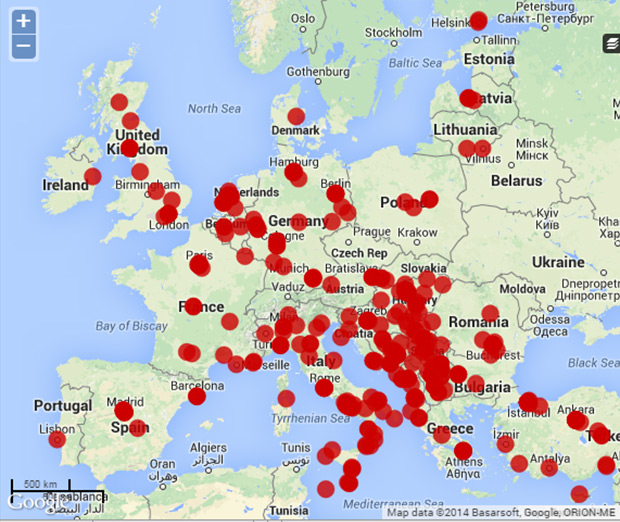 |
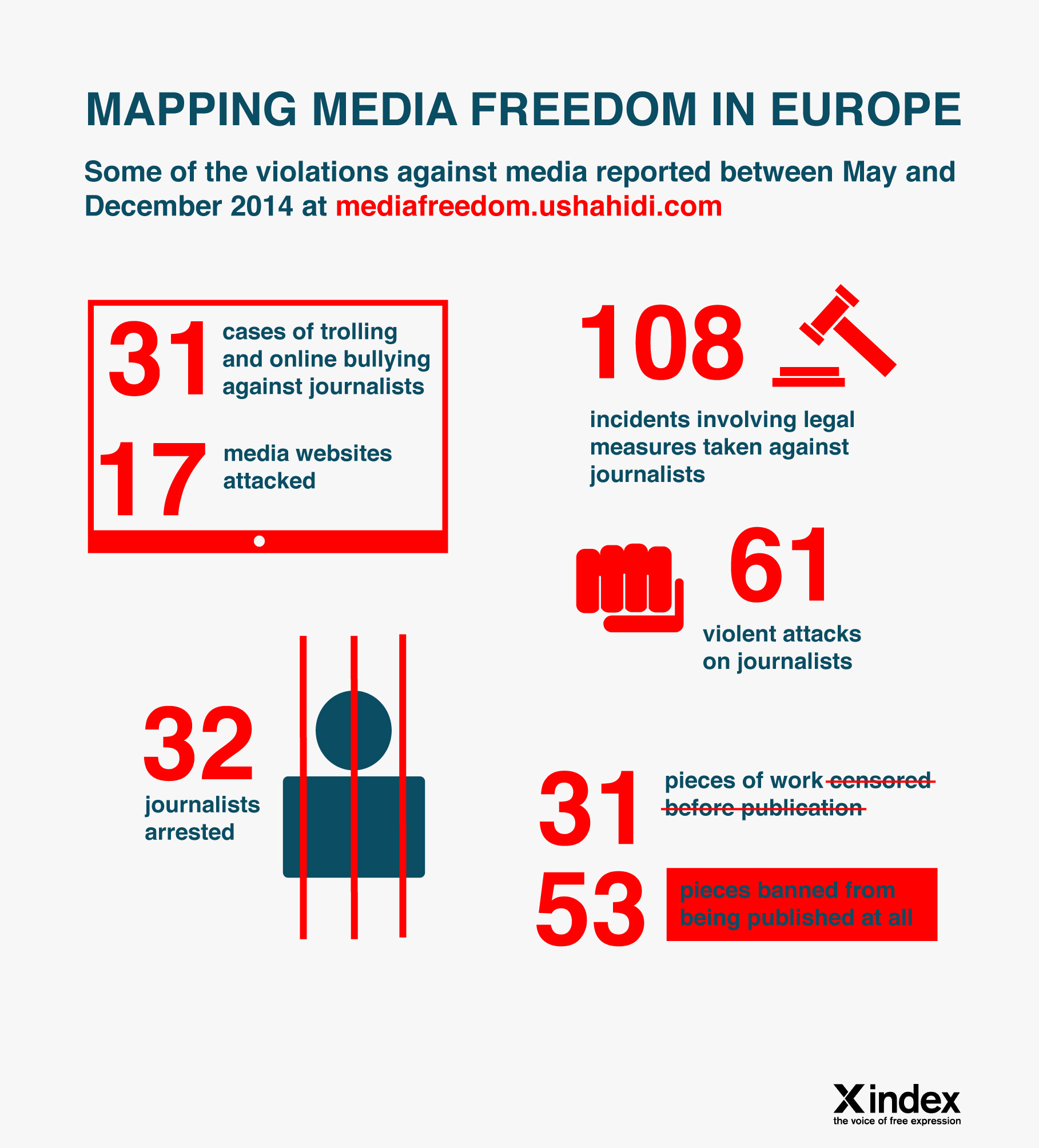
This is the reality of being a journalist in Europe in 2014
Selected incidents reported to mediafreedom.ushahidi.com |
 |
|
Turkey: Journalist Erol Ozkoray was sentenced to 11 months and 20 days in prison for defaming President Recep Tayyip Erdogan by referring to anti-Erdogan slogans and graffiti in his book about the 2013 Gezi Park protests |
|
 |
|
Germany: Blogger Su Yutong was fired by Deutsche Welle’s Chinese service after tweeting about employee meetings, where staff were told to use restraint in their coverage of China |
|
 |
|
Hungary: Three journalists were chased with a hydraulic shovel by an employee of a rubbish dump after they tried to verify information regarding a possible leak from the EU-funded dump |
|
 |
|
France: Far-right party Front National sued and called for the resignation of journalist Guy Lagache after his TV show aired an undercover documentary about one of their municipal campaigns |
|
 |
|
Albania: A masked attacker tried to shoot Artur Cani, an investigative journalist for TV News 24, near his home in Tirana |
|
 |
|
Kosovo: Milot Hasimja, a journalist with the Pristina-based TV Klan, was knifed at his desk by a man apparently unhappy with a feature Hasimja did on him |
|
 |
|
Netherlands: Freelance photographer John van Ieperen was beaten by a security guard when covering the aftermath of an explosion in an apartment building that killed two residents |
|
 |
|
United Kingdom: Blogger Michael Abberton who broadcast “fact checks” about the UK Independence Party said he was advised to delete a tweet about the party’s policies after being visited at home by two police officers |
|
 |
|
Serbia: Dusan Dragisic, a local businessman, threatened to cut off the nose and ears of Nenad Tomic, owner and editor-in-chief of the website Ruma |
|
 |
|
Bosnia: Professor Slavo Kukic, a prominent writer and columnist, was severely beaten with a baseball bat in his office at the University of Mostar |
|
 |
|
Italy: Pino Maniaci, head of Sicilian TV station Telejato who is known for reporting on the Sicilian mafia, found his pet dogs hanged from a metal post in a yard near his office |
|
 |
|
Bulgaria: The company car of bTV political journalist Genka Shikerova was set on fire outside her home in Sofia |
|
Categorisation of violations
There are 51 different labels used to organise the incidents reported to mediafreedom.ushahidi.com |
Legal measures
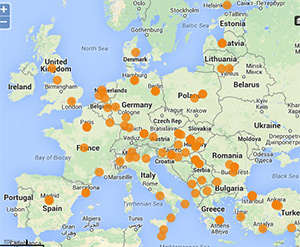
Incidents that involved the threat of or filing of legal actions
|
|
Censorship
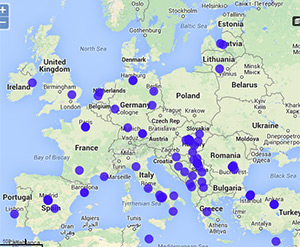
Incidents that included partial or complete censorship
|
|
Government threat
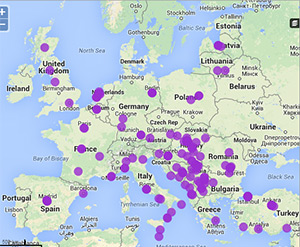
Incidents that originated from a government representative or agency
|
|
Co-Funded by
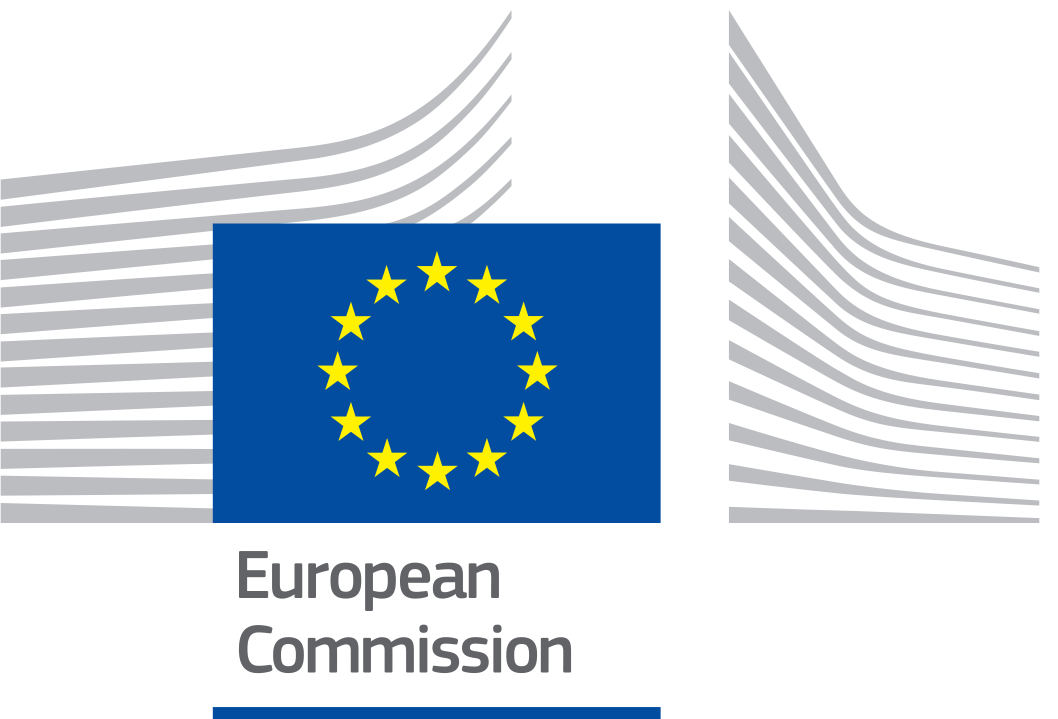 |
30 Jul 2014 | News and features, Poland, Religion and Culture
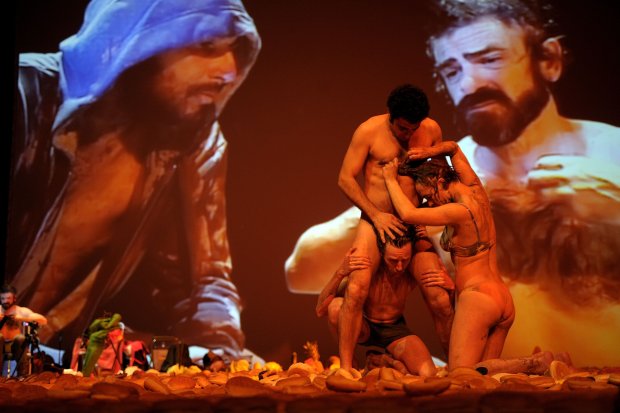
Golgota Picnic was pulled from a the Malta Festival in Poland after religious groups leveled threats.
The Polish theatre scene has been rocked by controversy since late June after the cancellation of Golgota Picnic, a show by the Argentinian theatre maker Rodrigo Garcìa that had previously aroused protest in France.
The play’s supposedly blasphemous content meant that Michał Merczyński, director of the Malta Festival, had pulled the headline show of his festival a week before its scheduled performance. The Malta Festival in Poznań is Poland’s answer to the Edinburgh Festival, and I was visiting with other directors from the Young Vic to learn more about Polish theatre culture. Our experience of the festival was derailed by claims and counter claims of blasphemy and censorship.
Merczyński’s decision to pull the show was based on information that a protest of 50,000 was planned and advice from the police that they could not guarantee the safety of the audience or the performers. The festival’s decision enraged large parts of secular Poland’s cultural elite, who feared that the police warning represented the state’s acquiescence to unofficial censorship by a group of interests centred upon the increasingly powerful Catholic church.
In reaction to the cancellation, there was a proliferation of protest screenings and staged readings of Golgota Picnic in theatres across Poland, some of which were variously picketed by a loose coalition of Catholics, neo-nazis and football hooligans. At the protest screening my group attended, at TR Warzsawa in Warsaw, these three groups all appeared to be embarrassed by each other. They prayed together and held placards warning that “Poland, motherland of Saint John-Paul II must not be a latrine for the trashes of the blasphemer, of the scoffers, of the traitors, of the barbarian and pseudo-artists”.
The Young Vic directors were jostled as we attempted to get in to the theatre and through the double cordon — first the protesters trying to stop us getting into the theatre, and then the police holding back the protesters. In the end we climbed over a low fence around a corner to get in and the police quickly bundled us into the building.
It’s important to say that this was much more exciting than it was scary. Here was evidence that theatre matters: people threatening hostility, if not quite violence, in response to an artwork. As far as I could make out from the DVD, Golgota Picnic (screened in Spanish with Polish subtitles) was a considered and beautiful meditation on the body and on Christ’s body in particular. Although it included a scene where a woman playing Jesus sculpted her gelled hair over another person’s genitalia, I’ve certainly seen more blasphemous plays. The crowd outside were fairly audible in their hymns and their chants, but — in the end, the protesters were defeated by the length of a piece of theatre. When we emerged two and a half hours later, they had given up and gone home.
The cancellation of Golgota Picnic left the Malta Festival deflated, but it felt as if these protests might be a powerful shot in the arm for Polish theatre culture in general. Several people we met were excited by the possibilities of the networks created and issues raised in the fight against religious censorship. Polish theatre provided a central political role in the end years of communism, and then lost its way only to be reinvented at the end of the nineties as a means to interrogate more universal themes in the formally explosive theatre of Gzegorz Jarzyna, Krzystof Warlikowski and Jan Klata, directors who still dominate the scene. It appears that Polish theatre is ripe for a new generation to redefine what theatre means.
As an outsider, this culture war looked complex and unhappy. Of course I was inside the theatre rather than on the street with a rosary, but it was clear that all the theatre people we met were well educated and well heeled. The Catholic protesters were not, and they felt like a demographic who had been left behind by the neo-liberalism that has replaced communism. It’s hardly surprising that these people are angry to see that “they are mocking us”, as one man complained to us on the steps of TR Warszawa.
It’s worrying to encounter theatre censorship in the EU, and artists should be free to present their work. At the same time, theatre institutions have a responsibility to ensure each piece of work finds its audience in the most productive way possible. With Golgota Picnic, the Malta Festival imported a show that had already caused protests elsewhere. Their marketing presented it as sexily controversial, and when this spectacularly backfired they cancelled the performance. Artists should shock and offend, but theatre makers and producers have to tread thoughtfully to ensure that the presentation of powerful work doesn’t play into the hands of those who would censor it.
Jeff James’s visit to Poland was supported by the Adam Mickiewicz Institute, the Young Vic and the Jerwood Charitable Foundation.
This article was posted on July 30, 2014 at indexoncensorship.org
